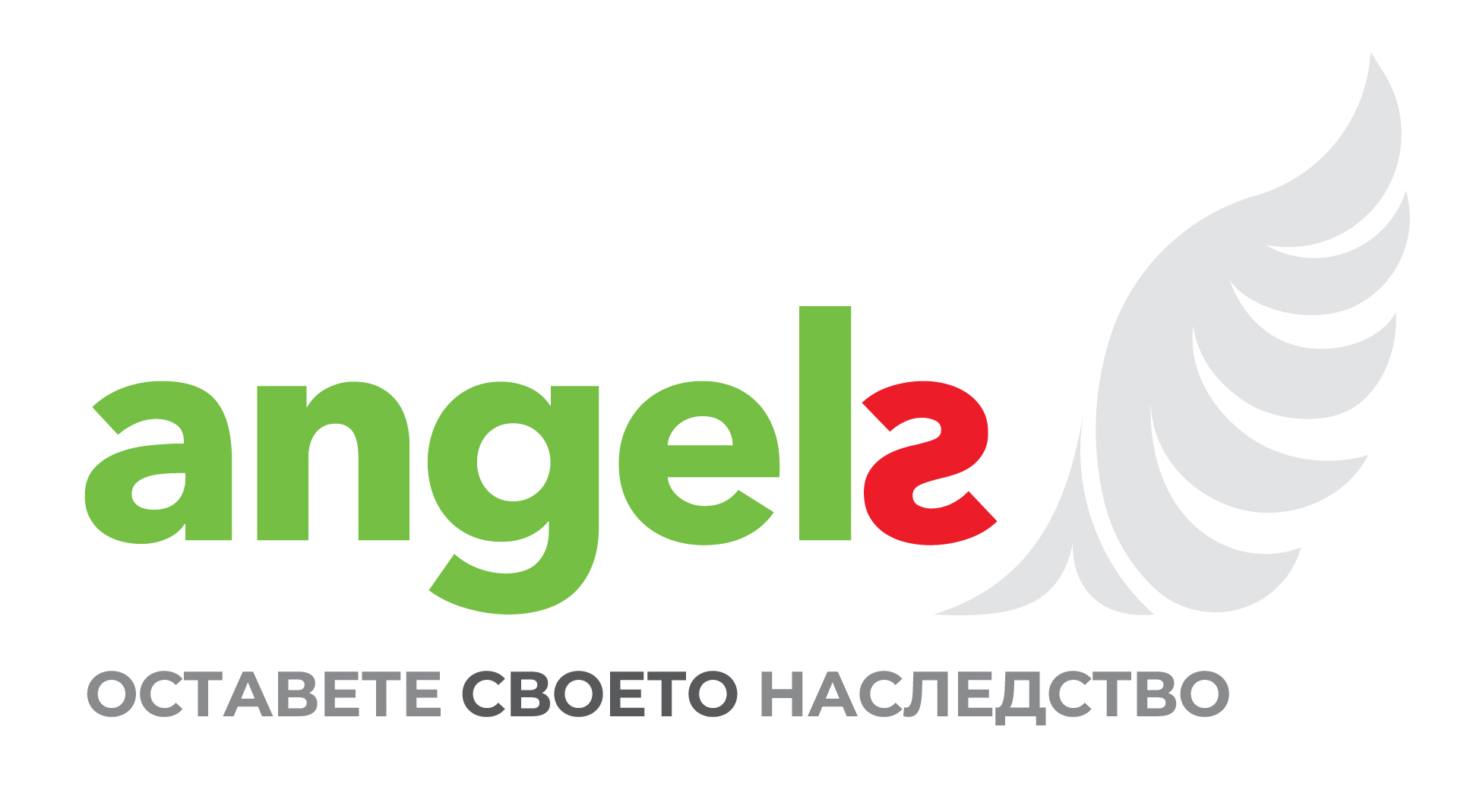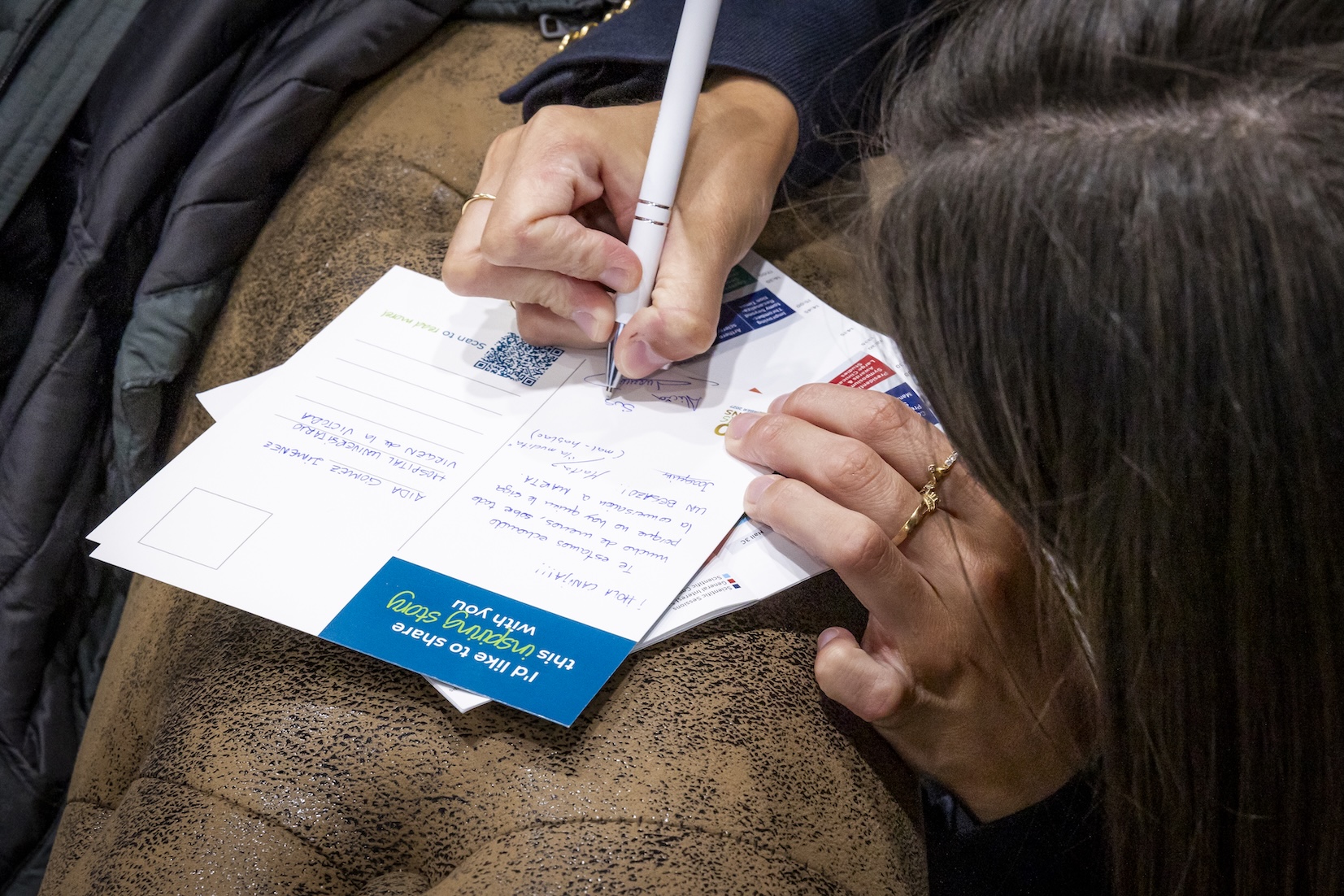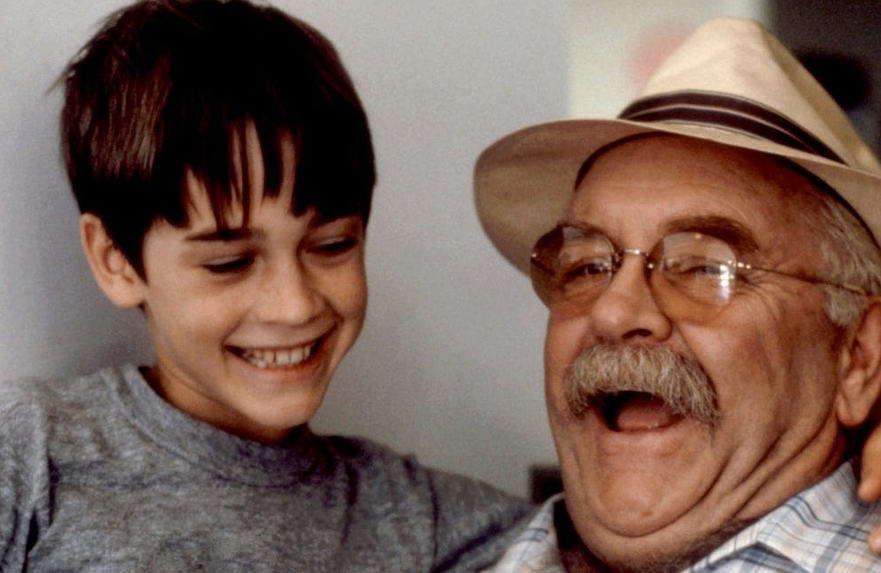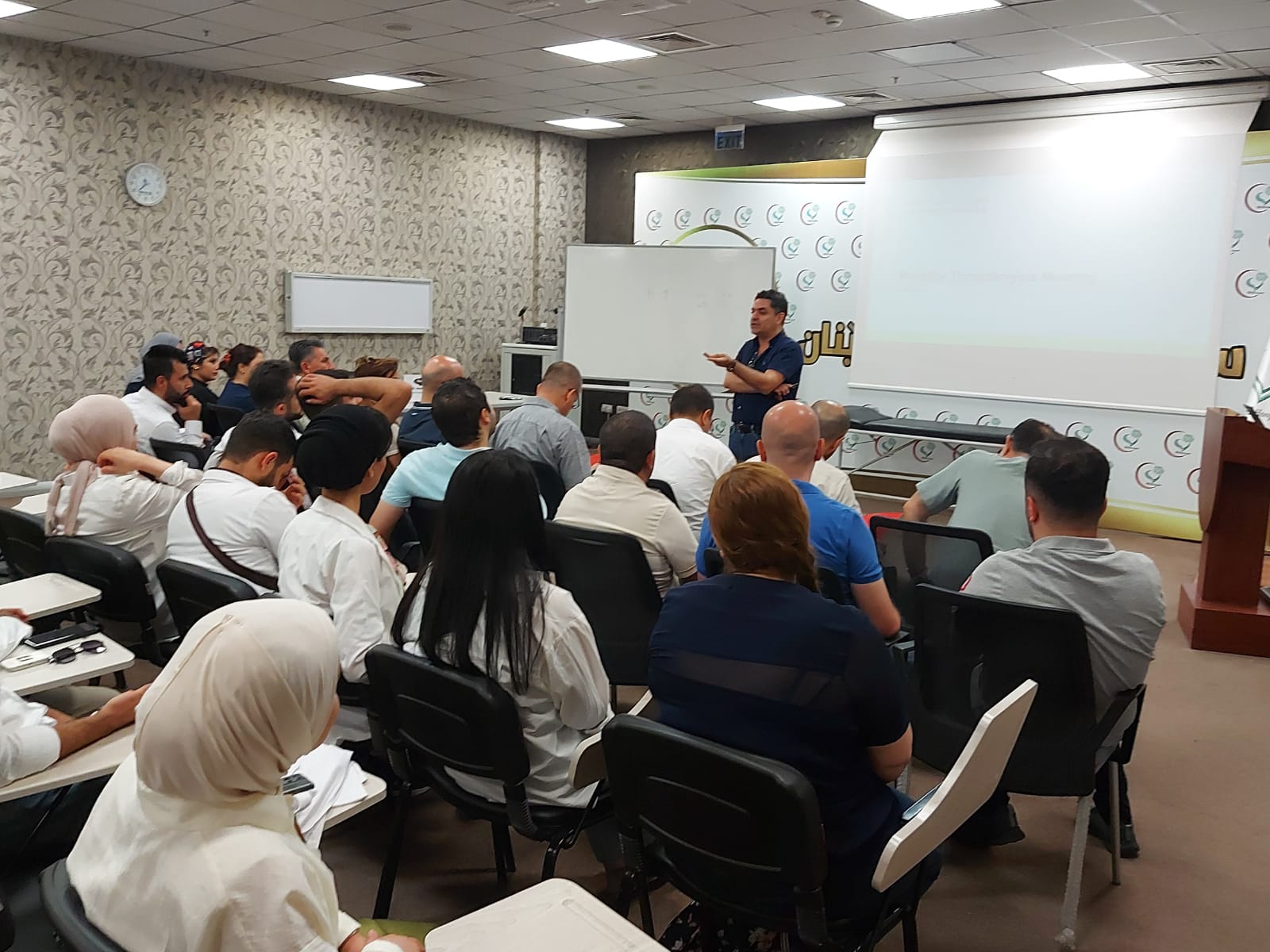
„Някои мъже виждат нещата такива, каквито са, и питат защо. Сънувах неща, които никога не са били и питам защо не.“
Джордж Бърнард Шоу
През януари 2023 г. в Сулеймания, Кюрдистан, Ирак, се сбъдна мечта за мъж, който мечтаеше за неща, които никога не са били. Нещото, което не беше – нито тук, нито никъде в Ирак – беше специализирано отделение за инсулти, което би осигурило грижа от световна класа за хората, живеещи в и около столицата Сюлейман.
Това беше изключително дълга мечта - такава, която се чувстваше сякаш се разпростира през цялата нощ, само тази е продължила всичките осем години. В продължение на осем години д-р Зана Абдулрахман питаше защо не и всеки път отговорът беше още една пречка по пътя на прогреса и лечението на пациенти с инсулт според глобалните стандарти.
Пациентите с инсулт в тази и други иракски болници са диагностицирани и изписани за такъв живот, какъвто са останали за тях, след като са получили малко повече от сестрински грижи и аспирин. Д-р Зана знаеше тежестта, която очакваше тях и техните семейства, финансовите затруднения, месеците на рехабилитация, докато глобалните развития в грижите при инсулт обещаха различен резултат. Воден от „личното чувство към пациентите“ и подтикнал екип от млади лекари с подобна нагласа, той сънувал съществуването на първото отделение за инсулти в Ирак.
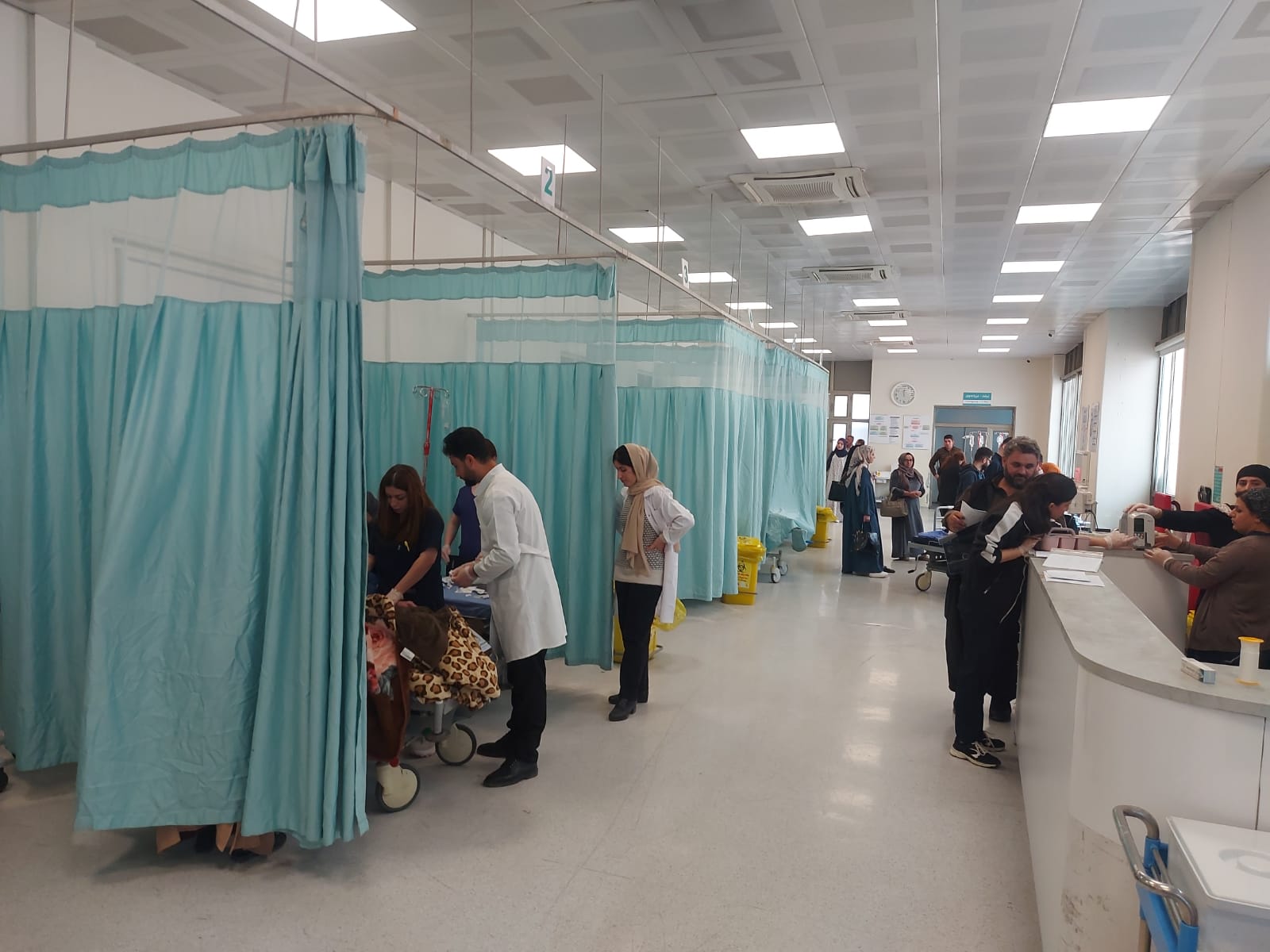
„Това е за всеки пациент“
За да отворите ново специализирано отделение за инсулти, ви е необходим човек със смелост и лидерство, казва д-р Сафин Сиуейли, старши жител по неврология в болницата „Шар“. Той и неговите колеги, д-р Кайван Кава и Мардин Абдулкарим, са благодарни за тези качества в техния учител и ръководител на отделение и за това, че се намират в авангарда на трансформацията на инсулта в Ирак.
Осем години сънуване и планиране означаваха, че когато най-накрая отделение за инсулти на д-р Зана отвори с финансиране, осигурено от НПО, то вече имаше отличителните белези на успеха. Персонализираният протокол включваше бдителна медицинска сестра за инсулт в спешно отделение, бърз триаж, приоритетен достъп до КТ, денонощна неврологична услуга, специален асансьор за минимизиране на закъсненията и фокус върху подобрението от първия ден.
Непрекъснато подобрение е отбелязано в календара; има месечна среща, през последната седмица на всеки месец, за да се обсъдят всички техни случаи, и тримесечна среща, за да се оцени тяхното представяне от предходните три месеца, да се прегледа техният протокол и да се обсъди какво биха могли да направят по-добре.
От над 300 пациенти, които вече са получили тромболиза в специализираното отделение за инсулти на д-р Зана, неизбежно има такива, които се открояват. За д-р Сафин това е овдовяла майка на три деца, която е пристигнала с резултат NIHSS от 15 и се е прибрала без увреждания.
„Всички те са важни“, д-р Сафин. „Но я помня като най-важна, защото това промени резултата за нейното семейство.“
В друга обстановка тези жени от бедно семейство може да не са могли да си позволят животоспасяващо лечение, но в специализираното отделение за инсулти на д-р Зана пациентите се лекуват безплатно. „Това е за всеки пациент“, казва д-р Сафин.
За колегата си д-р Мардин Абдулкарим, моментът е най-тежък, когато пациент в бърлогата е някой, когото познавате. След като е лекувал братовчед и сестрата на колега, той казва: „За всеки пациент има възможност от усложнения, но когато е близо до вас, вземането на решения идва с различен вид стрес.“
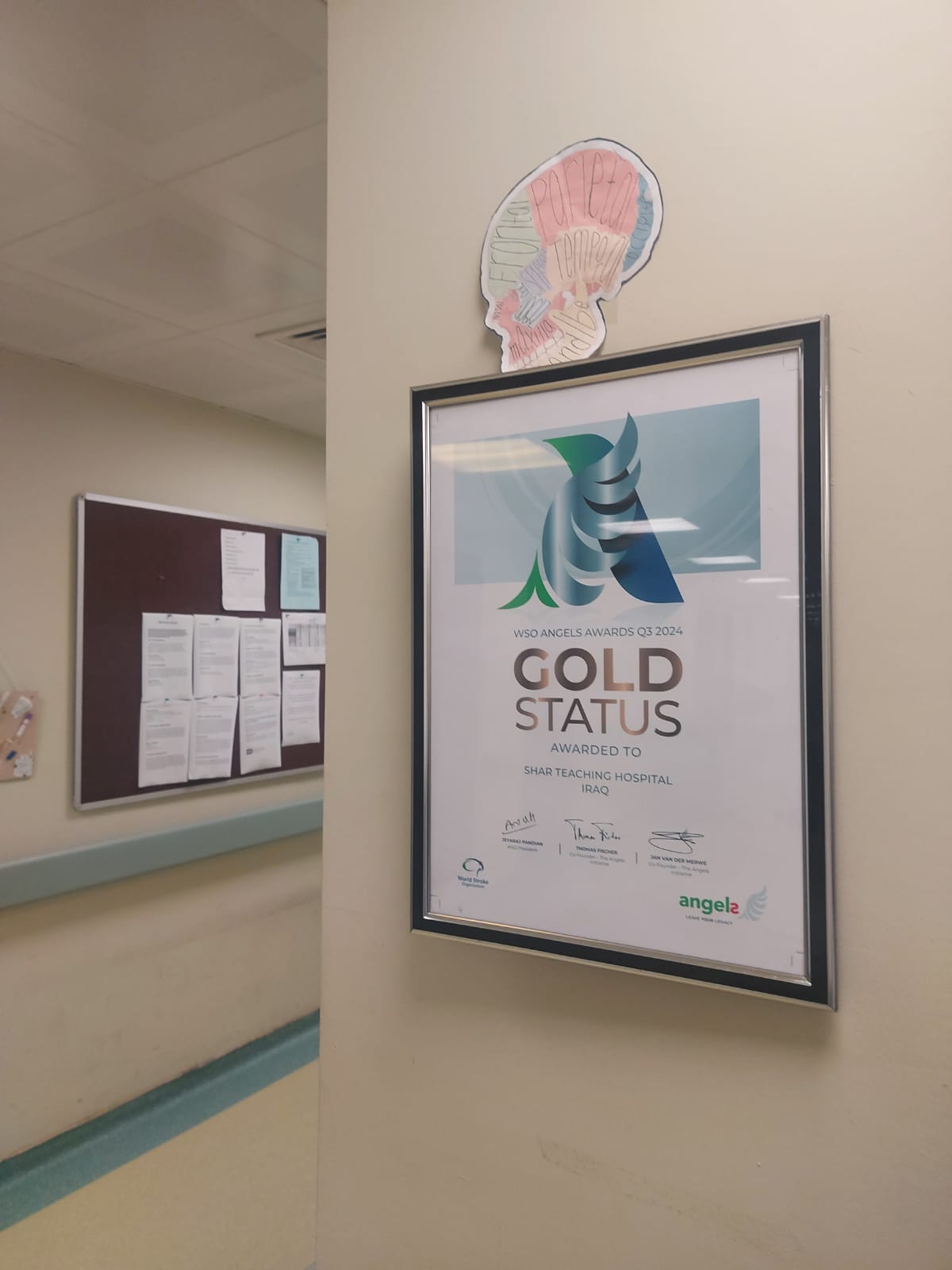
Достигане на нашия потенциал
Ключът към овладяването на стреса е много ясен, много специфичен протокол, казва д-р Кайван Кава, който се присъедини през април тази година и отбелязва прагматично: „Не можеш да позволиш на надеждата да промениш нещата, за да забравиш реалността. Мечтата за специализирано отделение за инсулти е наистина добра, но не трябва да забравяте да държите краката си на земята.“
Ако имате проблеми с поддържането на краката си на земята, здравният сценарий в Кюрдистан може просто да го направи за вас. На фона на тежката финансова криза в региона условията на труд са по-малко от идеалните, а закъсненията на заплатите не са рядкост. Стремежът за предоставяне на грижи от световна класа в този контекст идва от наблюдението на въздействието върху живота на пациентите и подобрените грижи и резултати, които са резултат от малки промени, направени ден след ден.
„Това е движещата сила за повечето от нас“, казва д-р Мардин. „Като невролози получаваме висока степен на лично удовлетворение от това, че виждаме въздействието на ранната интервенция и напредъка, постигнат от някой, който би бил инвалид, ако нямаше специализирано отделение за инсулти.“
Продуктът на смелостта и лидерството на д-р Зана вече е довел екипа за лечение на инсулт от Shar Hospital отвъд мечтите им. Като победители (заедно с учителската болница Al-Diwaniyah)на първите награди на WSO Angels в Ирак, те стоят рамо до рамо с най-добрите болници за лечение на инсулт в света - и значението на това е по-голямо от инсулт.
Д-р Кайван обяснява: „Тази награда е доказателство, че лекарите и медицинските сестри в Ирак имат капацитета да постигнат нещо велико; тя е свидетелство за нашата енергия и потенциал. Наградата ни дава гледна точка, надежда.Това означава, че можем да кажем на младите хора, вижте, ние сме способни. Ние сме способни да направим големи промени и да достигнем своя потенциал.“
* * * * *

„Всички мъже мечтаят: но не еднакво. Тези, които сънуват през нощта в прашните кътчета на ума си, се събуждат през деня, за да разберат, че това е суета, но мечтателите на деня са опасни хора, защото могат да изпълняват мечтите си с отворени очи, за да направят това възможно.“
― Т.Е. Лорънс
В училищната болница „Ал-Дивания“ на около 500 км южно от Сулаймания се срещаме с мъж, който мечтае денем и прави нещата възможни.
По време на обучението си по неврология д-р Мустафа Ал-Шахни често е виждал пациенти в катастрофалния афермат на инсулта, осъзнавайки, че няма какво да направи за тях.
Той казва: „Знаех, че има напреднали лечения, но те не се прилагат тук.“ Той си обеща, че след като завърши, ще промени всичко това и в края на 2022 г. се зае да спази обещанието си.
„Започнах от нулата“, казва той. „Никой не беше правил това преди мен.“
Отне шест месеца на д-р Мустафа да се оборудва с достатъчно знания и опит, за да изпълни плана си. Той е гледал поредица от образователни видеоклипове, създадени от Организацията за инсулт в Близкия Изток Северна Африка и е посетил болници в Турция и Дубай. Той не е имал специализирано отделение за инсулти, но интернист в болницата му е бил подготвен да приеме пациентите на д-р Мустафа в неговото отделение за коронарни грижи.
След това, по 12 май 2023, медийната служба на здравния отдел в Дивания съобщава, че „медицински отделение екип, ръководен от специализирания лекар Мустафа Карим Ал-Шахни в училищната болница „Ал Дивания“, е успял да спаси 80-годишен пациент от полупарализа“.
Д-р Мустафа ярко си спомня противоречивите чувства на страх и успех, които бележат тази забележителна точка в кариерата му. Скоро след това той тръгва на пътешествие, за да помогне на други лекари в Ирак да преодолеят същия страх.
Иракската мрежа за инсулти проведе първата си среща на Световния ден на инсулта 2023 г. и през декември стартира поредица от уебинари, за да разпространи знания и да сподели опит. Първата цел на мрежата е „изграждане на издръжливост вътре в невролозите“, казва д-р Мустафа. Втората е да се помогне за изграждането на специализирани отделения за инсулти; третата, която е написана в плана на организацията, е да се проучи инсулта в Ирак. Първоначалните изследвания на епидемиологията на инсулта в губернаторство Дивания бяха представени в WSC в Абу Даби през октомври. Преследването на работа в тази област е мечтата на д-р Мустафа.

„Мислех, че може би грешат“
Д-р Мустафа казва, че е избрал неврологията, защото е бил потиснат от предизвикателството. „Чух, докато изучавах, че темата е неясна. Казаха, че е безполезно; пациентите Ви няма да се възстановят. Но си мислех, че може би грешат.“
Доказателство за това колко грешат е наградата на „Ангели“ на WSO, с която работата на д-р Мустафа е призната на международната сцена. Но тя присъства още по-категорично в продължаващото здраве и доброто състояние на медицинска сестра от персонала в учителската болница Al-Diwaniyah, която е имала инсулт на 39-годишна възраст. Той е диагностициран в рамките на 20 минути от началото на симптомите и след лечение с тромболиза състоянието му се подобрява частично.
Д-р Мустафа си спомня: „Влязох в линейка с него и пътувахме до град на около час път, за да може да се подложи на механична тромбектомия. Той се възстанови добре и често го виждам тук, в болницата.
„Всяка седмица виждам успеха си.“
